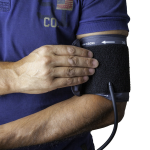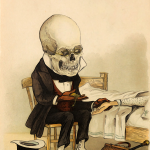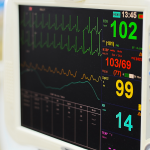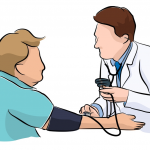When you sit for a blood pressure reading, where is the best place to measure it? An article in the Washington Post suggests that the doctor's office, for several reasons, might not be the best place to collect the most accurate readings. Here are the factors to consider – and possibly raise with your doctor.
blood pressure
Once a long time ago, doctors made house calls. If you couldn’t reach the office, the doctor came to you. Telemedicine has been a pale but viable replacement. A new smartphone attachment brings a more helpful home visit closer to reality.
To reduce your risk of a cardiovascular “event,” your doctor will always recommend maintaining a healthy diet and exercise. But how much does a healthy diet actually contribute to risk reduction; is it worth giving up all the “bad” foods that taste so good? A new study tries to find an answer.
We've been told for decades that less is more when it comes to salt in the diet. Recent research has thrown that conclusion into doubt. Can we identify children who may be at risk for SIDS before it suddenly and tragically strikes?
There are probably few, if any, nutritional advisories that are as hotly debated as the appropriate level of sodium intake for healthy adults. Yes, the Dietary Guidelines and the American Heart Association recommend an upper limit of 2,300 mg sodium per day (about a teaspoon). But some new research is being added to the literature indicating that level of restriction may be too strict.
Apparently, you can make any claim with an Asterisk (*), so long as the asterisk clarifies that your claim isn't true. In one of Dr. Oz's latest press releases, the TV 'doc' touts apple cider vinegar (or any vinegar) as a miracle health benefit: it improves blood flow, prevents diabetes, encourages weight loss, and prevents cancer. But not too long ago on the Dr. Oz show, he caveats his claims by saying this: "
Vital signs matter. And they matter most when they're collected correctly and they provide accurate data. Dismiss them, or do them incorrectly, and the erroneous information will likely result in harmful medical decisions made on your behalf.
When we check our blood pressure, we usually do it in one arm or the other. But there's a good reason to check the pressure in both arms. A large difference between arms may be a sign of increased cardiovascular disease – and even the threat of death.
There's an ever-growing body of evidence that reinforces the health benefits of being with animals. A new study published in BMC Psychiatry explores the role pets had with those suffering from bipolar disorder, schizophrenia and other significant, long-term mental illnesses.
Prospective study of 228 morbidly obese teens shows that two different types of bariatric surgery led to significant benefits. They included weight loss, and improved cardiometabolic levels, including blood pressure, lipids, diabetes and kidney function.
US health officials have long warned that too much salt intake as a child can raise lifelong risk of high blood pressure. However, a new study published in JAMA Pediatrics suggests it s actually potassium intake that kids should be aware of.
High blood pressure is the most important risk factor for premature death in the world. Currently, 1 billion people have clinically abnormal blood pressure (hypertension), and most cases are grade 1 (mild) hypertension (defined as systolic blood pressure of 140 to 159 mm Hg and/or a diastolic blood pressure of 90 to 99







